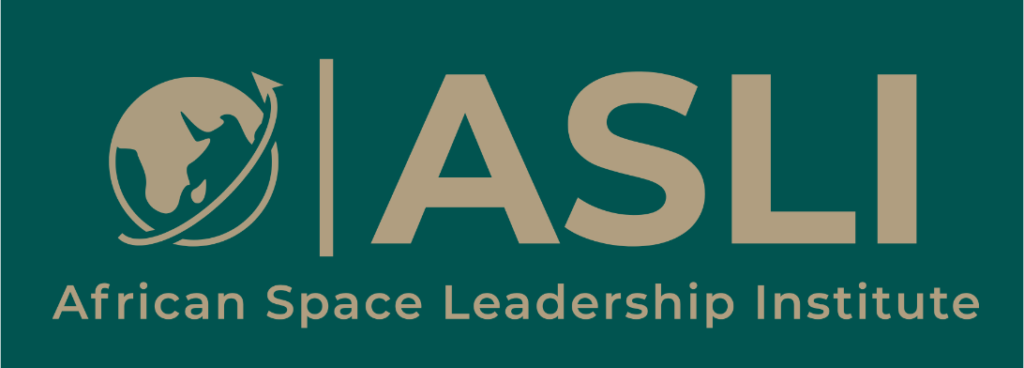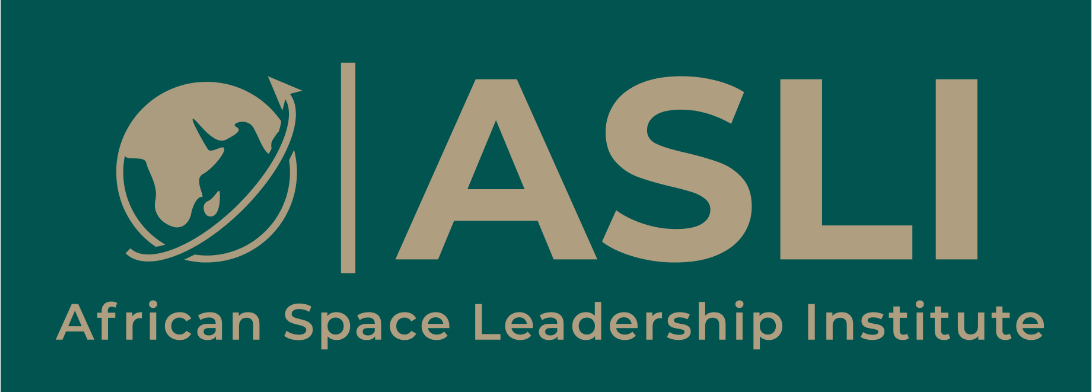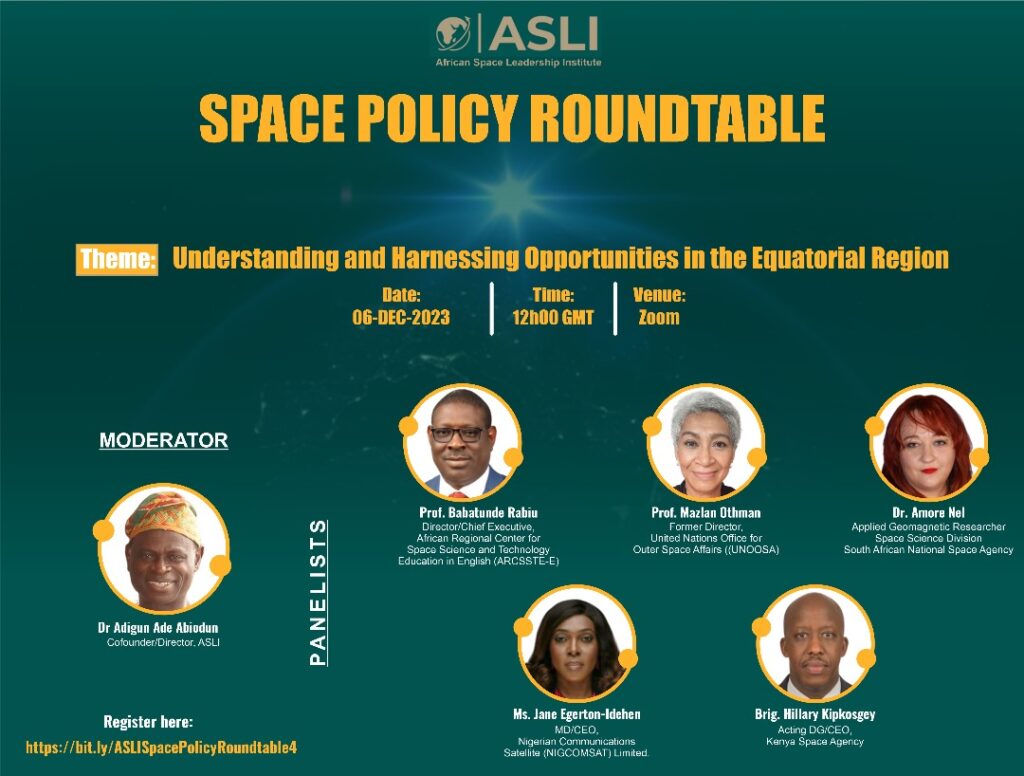
In 2013, the 5th African Space Leadership Conference on Space Science and Technology for Sustainable Development (ALC) was held in Accra, Ghana, with the theme: “Building a Shared Vision for Space Science and Technology in Africa.” Several issues were discussed during the conference, including the challenges and opportunities in the Near Equatorial region (NEqO).
The Conference produced nine recommendations including the encouragement of greater intra-African cooperation in space science and technology by:
(i) developing strategies to inform and coordinate greater cooperation between and among relevant institutions, agencies and governments;
(ii) identifying flagship programmes to be considered, adopted and implemented at various levels, across Member States, Regional Economic Communities (RECs) and the African Union (AU); and
(iii) assisting in the development of an indigenous space industrial capability through greater Public Private Partnerships.
It is now ten years after the conclusion of the ALC2013 Conference. The African Space Leadership Institute (ASLI) is organising a roundtable to reflect, again, on how African countries can invest in front-line research on the characteristics and attributes of the equator, in order to advance human knowledge of outer space as well as harness its potential opportunities for the social and economic benefit of the region.
To participate in the discussion, register here: https://bit.ly/ASLISpacePolicyRoundtable4
The panelists are as follows:
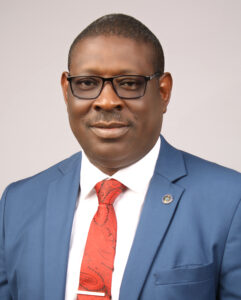 Babatunde Rabiu is a Professor of Space Physics and has been the Director/Chief Executive of the African Regional Centre for Space Science and Technology Education in English (ARCSSTE-E), Ile-Ife, Nigeria, since November 2022. His research interest lies mainly in ionospheric physics, space weather, solar terrestrial interactions, ozone variability and air quality. He served as the pioneer President of the African Geophysical Society (AGS) between November 2012 and November 2016. He is a fellow of a number of Academic societies including the Royal Astronomical Society UK, Nigerian Geophysical Society, Society for Environmental Toxicology and Pollution Mitigation, and Astronomical Society of Nigeria. He is a member of many professional bodies including Nigerian Institute of Physics, African Geophysical Society, American Geophysical Union, and Institute of Navigation. He is a Senior Associate of the Abdus Salam International Centre for Theoretical Physics, Trieste, Italy. He is the African Coordinator and Member of the International Steering Committee (ISC) of the International Space Weather Initiative (ISWI). In October 2022, he was appointed as one of the Board Directors of the global American Geophysical Union AGU for the years 2023 – 2024.
Babatunde Rabiu is a Professor of Space Physics and has been the Director/Chief Executive of the African Regional Centre for Space Science and Technology Education in English (ARCSSTE-E), Ile-Ife, Nigeria, since November 2022. His research interest lies mainly in ionospheric physics, space weather, solar terrestrial interactions, ozone variability and air quality. He served as the pioneer President of the African Geophysical Society (AGS) between November 2012 and November 2016. He is a fellow of a number of Academic societies including the Royal Astronomical Society UK, Nigerian Geophysical Society, Society for Environmental Toxicology and Pollution Mitigation, and Astronomical Society of Nigeria. He is a member of many professional bodies including Nigerian Institute of Physics, African Geophysical Society, American Geophysical Union, and Institute of Navigation. He is a Senior Associate of the Abdus Salam International Centre for Theoretical Physics, Trieste, Italy. He is the African Coordinator and Member of the International Steering Committee (ISC) of the International Space Weather Initiative (ISWI). In October 2022, he was appointed as one of the Board Directors of the global American Geophysical Union AGU for the years 2023 – 2024.
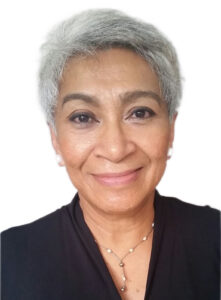 Mazlan Othman obtained a Ph.D. in Astrophysics from the University of Otago, New Zealand, and became a lecturer at the Universiti Kebangsaan Malaysia (UKM) in 1981. Seconded to the Prime Minister’s Department in 1990 to set up and head the Planetarium Division, which subsequently became the Space Science Studies Division in 1993. Appointed by Universiti Kebangsaan Malaysia as Professor of Astrophysics in 1994. Appointed Director of the United Nations Office for Outer Space Affairs (UNOOSA) in Vienna, Austria in 1999. Returned to Malaysia to become the founding Director General of the National Space Agency (ANGKASA) beginning July 2002. In this capacity she established the National Observatory in Langkawi and National Space Centre in Selangor. She headed the National Angkasawan (Astronaut) Programme which saw the launch of the first Malaysian to the International Space Station in 2007. She was responsible for the launch of Malaysia Remote Sensing Satellites: TiungSAT and RazakSAT. She attended the Advanced Management Programme (AMP169) at Harvard Business School in 2005. Resumed post as Director of UNOOSA in December 2007 upon retirement from Malaysian Civil Service. Appointed Deputy Director-General of the United Nations Office at Vienna (UNOV) in June 2009. Retired from the United Nations in Dec 2013. Appointed Project Director, Mega Science 3.0 at Academy of Sciences Malaysia (ASM) 2014 -2016. Became Professor Emeritus at UKM in 2015 and was a Fulbright Scholar at the Space Policy Institute of George Washington University 2015-2016. Elected Senior Fellow of ASM in 2016. Was Director of the International Science Council (ISC) Regional Office for Asia and the Pacific (ROAP) 2017-2021.
Mazlan Othman obtained a Ph.D. in Astrophysics from the University of Otago, New Zealand, and became a lecturer at the Universiti Kebangsaan Malaysia (UKM) in 1981. Seconded to the Prime Minister’s Department in 1990 to set up and head the Planetarium Division, which subsequently became the Space Science Studies Division in 1993. Appointed by Universiti Kebangsaan Malaysia as Professor of Astrophysics in 1994. Appointed Director of the United Nations Office for Outer Space Affairs (UNOOSA) in Vienna, Austria in 1999. Returned to Malaysia to become the founding Director General of the National Space Agency (ANGKASA) beginning July 2002. In this capacity she established the National Observatory in Langkawi and National Space Centre in Selangor. She headed the National Angkasawan (Astronaut) Programme which saw the launch of the first Malaysian to the International Space Station in 2007. She was responsible for the launch of Malaysia Remote Sensing Satellites: TiungSAT and RazakSAT. She attended the Advanced Management Programme (AMP169) at Harvard Business School in 2005. Resumed post as Director of UNOOSA in December 2007 upon retirement from Malaysian Civil Service. Appointed Deputy Director-General of the United Nations Office at Vienna (UNOV) in June 2009. Retired from the United Nations in Dec 2013. Appointed Project Director, Mega Science 3.0 at Academy of Sciences Malaysia (ASM) 2014 -2016. Became Professor Emeritus at UKM in 2015 and was a Fulbright Scholar at the Space Policy Institute of George Washington University 2015-2016. Elected Senior Fellow of ASM in 2016. Was Director of the International Science Council (ISC) Regional Office for Asia and the Pacific (ROAP) 2017-2021.
 Amoré Nel attained her BSc in Applied Mathematics at the University of Stellenbosch and her BSc(Hons) in Astrophysics at the University of the Free State. She was awarded the South African National Space Agency Masters Scholarship and attained her MSc at the North-West University studying near-Earth solar turbulence. She then earned her PhD in Space Physics in 2019, reporting on the discovery and analysis of a new type of aurora while on fieldwork in Norway. She was part of the 2018/2019 Antarctic take-over team doing routine maintenance on the scientific instrumentation at the South African Antarctic base. Her postdoctoral work was at the Helmholtz GFZ German Research Centre for Geosciences (Potsdam, Germany), where focus was on recording and analysing magnetometer observatory data, Southern African regional geomagnetic field models, and external geomagnetic field studies using joint satellite and ground-based observatory data. Her areas of interest have been studying near-Earth solar turbulence and the solar-cycle dependences of solar turbulence quantities, upper atmosphere studies using incoherent scatter radar and optical methods to investigate small-scale auroras in Norway and abrupt secular variation changes in Earth’s geomagnetic field. Currently, she is the applied geomagnetic researcher at SANSA Space Science. She aims to further Pan-African geomagnetic research and innovation by deploying magnetometer stations near and adjacent to the magnetic equator in the African sector. She is passionate about promoting international cooperation in the field of Space Science.
Amoré Nel attained her BSc in Applied Mathematics at the University of Stellenbosch and her BSc(Hons) in Astrophysics at the University of the Free State. She was awarded the South African National Space Agency Masters Scholarship and attained her MSc at the North-West University studying near-Earth solar turbulence. She then earned her PhD in Space Physics in 2019, reporting on the discovery and analysis of a new type of aurora while on fieldwork in Norway. She was part of the 2018/2019 Antarctic take-over team doing routine maintenance on the scientific instrumentation at the South African Antarctic base. Her postdoctoral work was at the Helmholtz GFZ German Research Centre for Geosciences (Potsdam, Germany), where focus was on recording and analysing magnetometer observatory data, Southern African regional geomagnetic field models, and external geomagnetic field studies using joint satellite and ground-based observatory data. Her areas of interest have been studying near-Earth solar turbulence and the solar-cycle dependences of solar turbulence quantities, upper atmosphere studies using incoherent scatter radar and optical methods to investigate small-scale auroras in Norway and abrupt secular variation changes in Earth’s geomagnetic field. Currently, she is the applied geomagnetic researcher at SANSA Space Science. She aims to further Pan-African geomagnetic research and innovation by deploying magnetometer stations near and adjacent to the magnetic equator in the African sector. She is passionate about promoting international cooperation in the field of Space Science.
 Jane Nkechi Egerton-Idehen is the MD/CEO for Nigcomsat, Nigeria’s communication Satellite. She is a Tech Executive, Author and Angel Investor. She was the Head of Sales, the Middle East and Africa, Meta (Facebook). Prior to that, she was the Country Manager, Nigeria, and the Regional Sales Director for the West African branch of Avanti Communications Group PLC, a British communication company with a fleet of satellites in space. She worked in various roles including technical, sales and management in the Telecommunication Infrastructure giant Ericsson. She also worked as a Cluster lead for Nokia Siemens Network in West Africa. She obtained her BSc in Electronics Engineering from the University of Nigeria. She furthered her education at Warwick Business School in the UK, where she received a master’s degree. She received an executive education at both Harvard Business School and Yale School of Management in the United States. Being one of the few females heading key business areas in the Nigerian tech industry has exposed Jane to numerous professional and personal challenges peculiar to women. Spurred by discussions with fellow female executives around the globe, she organised a forum at Ericsson in which emerging and experienced female leaders could support each other in developing their careers. The overwhelming success of the forum led her to found ‘Women and Career’, to reach women beyond her organisation and to support girls seeking careers after school.
Jane Nkechi Egerton-Idehen is the MD/CEO for Nigcomsat, Nigeria’s communication Satellite. She is a Tech Executive, Author and Angel Investor. She was the Head of Sales, the Middle East and Africa, Meta (Facebook). Prior to that, she was the Country Manager, Nigeria, and the Regional Sales Director for the West African branch of Avanti Communications Group PLC, a British communication company with a fleet of satellites in space. She worked in various roles including technical, sales and management in the Telecommunication Infrastructure giant Ericsson. She also worked as a Cluster lead for Nokia Siemens Network in West Africa. She obtained her BSc in Electronics Engineering from the University of Nigeria. She furthered her education at Warwick Business School in the UK, where she received a master’s degree. She received an executive education at both Harvard Business School and Yale School of Management in the United States. Being one of the few females heading key business areas in the Nigerian tech industry has exposed Jane to numerous professional and personal challenges peculiar to women. Spurred by discussions with fellow female executives around the globe, she organised a forum at Ericsson in which emerging and experienced female leaders could support each other in developing their careers. The overwhelming success of the forum led her to found ‘Women and Career’, to reach women beyond her organisation and to support girls seeking careers after school.
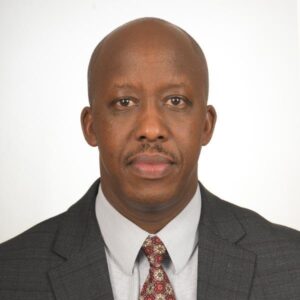 Brigadier Hillary B. Kipkosgey is currently the Acting Director General / CEO of the Kenya Space Agency, a position he assumed in June 2021, on secondment from the Kenya Defence Forces. His work experience spans 31 years. Prior to this, he was the Head of Logistics and Maintenance at the National Air Support Department. Brig Kipkosgey has previously held other appointments, which include Defence Attaché at the Kenya Embassy in Washington DC; Commanding Officer Aircraft Maintenance Wing; Head of Coordination at the National Counter Terrorism Centre; Head of Information and Communications Technology Division at NCTC; and Senior Instructor at the Defense Forces Technical College, among others. Brig Kipkosgey holds a Master of Strategic Studies, a Master of Science in Communication and Information systems, a Post Graduate Diploma in Strategic Studies and a Bachelor of Technology in Electrical and Communications Engineering. He is an alumnus of the U.S. Army War College, Pennsylvania.
Brigadier Hillary B. Kipkosgey is currently the Acting Director General / CEO of the Kenya Space Agency, a position he assumed in June 2021, on secondment from the Kenya Defence Forces. His work experience spans 31 years. Prior to this, he was the Head of Logistics and Maintenance at the National Air Support Department. Brig Kipkosgey has previously held other appointments, which include Defence Attaché at the Kenya Embassy in Washington DC; Commanding Officer Aircraft Maintenance Wing; Head of Coordination at the National Counter Terrorism Centre; Head of Information and Communications Technology Division at NCTC; and Senior Instructor at the Defense Forces Technical College, among others. Brig Kipkosgey holds a Master of Strategic Studies, a Master of Science in Communication and Information systems, a Post Graduate Diploma in Strategic Studies and a Bachelor of Technology in Electrical and Communications Engineering. He is an alumnus of the U.S. Army War College, Pennsylvania.
The roundtable will be moderated by Dr Adigun Ade Abiodun.
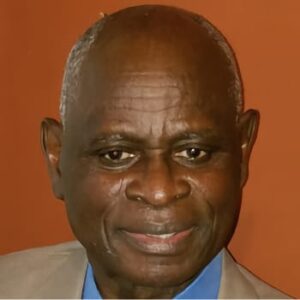 Dr. Adigun Ade Abiodun’s professional experiences includes his services as a hydraulic engineer with the US Army Corps of Engineers, in Seattle; as a system engineer at the Boeing Company, in Seattle; Snr. Lecturer at the University of Ife, (since renamed Obafemi Awolowo University), and as United Nations Expert on Space Applications from 1981 November to 1999 September, when he retired from the services of the United Nations. Thereafter, he was appointed by the Secretary-General of the United Nations as a Member of the College of Commissioners of the United Nations Monitoring, Verification and Inspection Commission on Iraq (UNMOVIC), (2000-2007). He also served concurrently as the Senior Special Assistant (to the President of Nigeria) on Space Science and Technology (March 2000 – May 2003). He was elected and served as the Chairman of the United Nations Committee on the Peaceful Uses of outer Space – COPUOS (June 2004 – June 2006). He is the Founder of the African Space Foundation (ASF). He also co-founded the African Association of Remote Sensing of Environment (AARSE), the African Leadership Conference on Space Science and Technology (ALC and the African Space Leadership Institute (ASLI). He also served as a member of the African Union Space Working Group. He serves as Director of ASLI.
Dr. Adigun Ade Abiodun’s professional experiences includes his services as a hydraulic engineer with the US Army Corps of Engineers, in Seattle; as a system engineer at the Boeing Company, in Seattle; Snr. Lecturer at the University of Ife, (since renamed Obafemi Awolowo University), and as United Nations Expert on Space Applications from 1981 November to 1999 September, when he retired from the services of the United Nations. Thereafter, he was appointed by the Secretary-General of the United Nations as a Member of the College of Commissioners of the United Nations Monitoring, Verification and Inspection Commission on Iraq (UNMOVIC), (2000-2007). He also served concurrently as the Senior Special Assistant (to the President of Nigeria) on Space Science and Technology (March 2000 – May 2003). He was elected and served as the Chairman of the United Nations Committee on the Peaceful Uses of outer Space – COPUOS (June 2004 – June 2006). He is the Founder of the African Space Foundation (ASF). He also co-founded the African Association of Remote Sensing of Environment (AARSE), the African Leadership Conference on Space Science and Technology (ALC and the African Space Leadership Institute (ASLI). He also served as a member of the African Union Space Working Group. He serves as Director of ASLI.
To participate in the discussion, register here: https://bit.ly/ASLISpacePolicyRoundtable4
